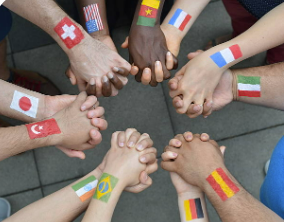From the time Dudu turned four, we began researching independent summer camps around the world.
At age six, she attended her first independent camp—a 3-night, 4-day experience. She packed her bags by herself according to a checklist. During the camp, she experienced a mild fever and even vomited, which we later discovered was due to a COVID-19 infection. The journey was full of challenges: she felt unwell and missed out on many activities she was excited about. However, she returned with an unusual calmness, even surprised by her own progress and growth in just a few short days. I remember her lying in my arms, eagerly sharing the various details of camp life: how another camper’s mom helped massage her to reduce her fever, how the teachers accompanied her with care, and how she had to sit on the sidelines during a water park day due to her fever, watching others have fun. She reflected on her inner journey throughout those days, yet remained positive and optimistic.
💡 Some skills can’t be taught in traditional ways, but summer camps can.
🎯 When a child steps away from the constant care of their parents and learns how to rely on themselves and external support to solve immediate problems, it’s an important life lesson!
Since then, I’ve understood the significance of independent summer camps—a value that cannot be replaced by day camps.
⛺️ What is an independent summer camp?
It’s a form of social experience where participants stay at the camp for at least 5 days, with all meals and accommodations included. Beyond basic activities, these camps are designed with a specific interest theme based on educational principles (such as adventure, surfing, soccer, diving, nature, equestrian, language, science, music, dance, film, theater, etc.) and typically last from 5 to 14 days. Different themed camps can be connected to last up to a month. The camps provide five meals a day (breakfast, lunch, dinner, an afternoon snack, and a late-night snack), with a different teaching purpose and schedule each day (usually taught through games).
🏕️ What is a day camp?
It’s a summer program with a theme, similar to attending school. Themes include animals, science, sports, language, programming, and more. Children are dropped off in the morning and picked up in the afternoon, with no overnight stay. These camps usually offer two meals a day (lunch and snacks).
⛺️ Independent Camps Vs. 🏕️ Day Camps
- The duration of challenges differs, leading to different levels of inner potential.
In day camps, when children face problems during the day, they know they can hold on and tell their parents in the evening, so their dependence on the family doesn’t decrease because of camp participation. In independent camps, however, where children stay overnight, they must learn to communicate and seek external support to solve problems, as their parents aren’t there to help. This positive feedback easily builds a sense of achievement. Supporting others also helps them gain self-worth. - The depth of friendships is different—friendships formed after sleeping together are more special.
People tend to have particularly vivid memories before bedtime, especially with friends under the same roof. Staying overnight deepens friendships: they chat, laugh, have late-night snacks, share secrets, and look forward to the new day together. It’s a unique emotional experience that’s hard to replace. - Handling conflicts and cultural differences is a required course for improving cognition.
Overnight stays amplify cultural differences, and understanding is the prerequisite for tolerance. Boarding highlights many differences and becomes a clue for learning about other cultures. The more you understand, the less prejudice you have, and the broader your perspective becomes. Local camps have an advantage in this regard.
In the next post, I’ll discuss common questions about summer camps and principles for choosing them. I’ll also share Dudu’s experiences and gains from those camps.



